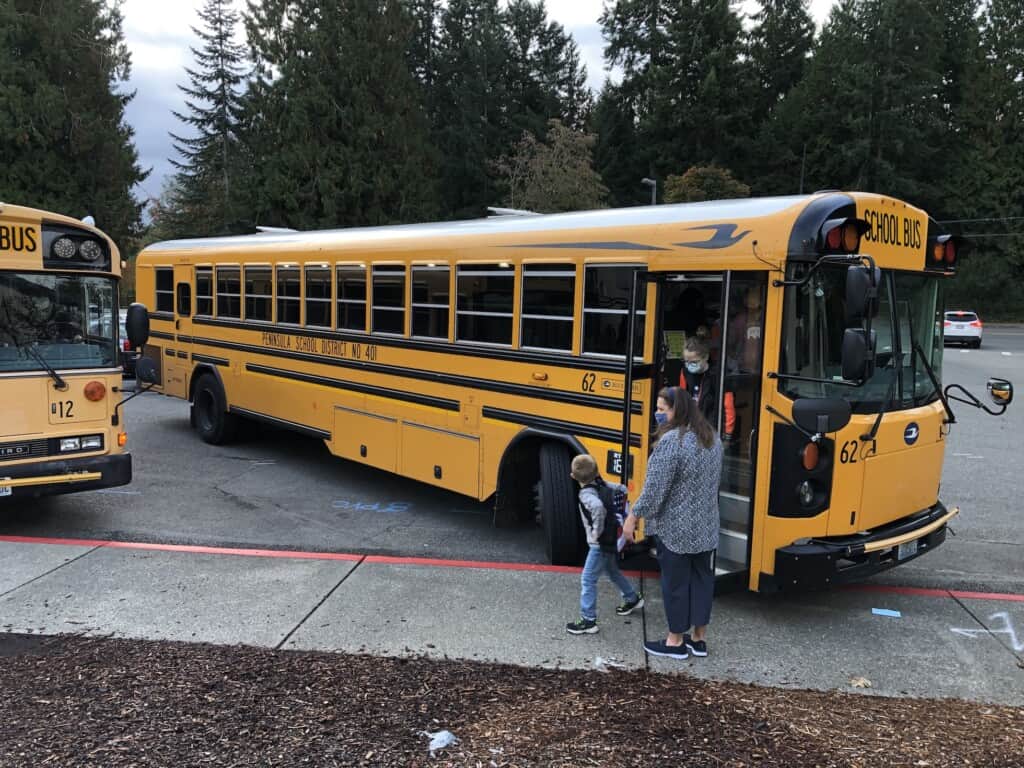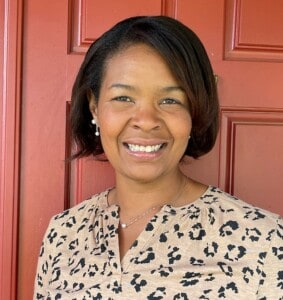Education
Olson, Beard express views on Peninsula School Board District 5 position
Two-term incumbent David Olson faces challenger Juanita Beard Nov. 2 in the race for Peninsula School District Board of Directors’ District 5 position. As the only two candidates in the race, they automatically qualified for the general election.
Education Sponsor
Education stories are made possible in part by Tacoma Community College, a proud sponsor of Gig Harbor Now.
Olson was first elected in 2013 and retained his seat in 2017, facing challengers in both elections. Beard in 2009 ran for the school board in Clover Park School District, where she previously lived, but did not win.

Two Peninsula school board positions are being contested in the Nov. 2 general election. Ed Friedrich / Gig Harbor Now
The District 5 seat is one of two vacancies on the five-person Peninsula school board. The District 2 position is also on the ballot.
The candidates’ information and responses to questions from Gig Harbor Now appear in the order candidates are listed in the Pierce County voters pamphlet. Campaign funding information is from the Washington State Public Disclosure Commission.
David Olson
Age: Not given
Current occupation: U.S. Bank, Corporate Banking Relationship Manager
Have you previously run for or held elected office? Yes. The voters elected me to the Peninsula School Board in 2013. They reelected me to the board in 2017. The citizens also elected me as a Pierce County Charter Review Commissioner in 2015.
Campaign Funds Raised/ Spent: $32,723/ $26,090
1. What is your motivation to run for the Peninsula school board?
I have served on the school board for the past eight years, and it has been quite an honor. My main motivation is to serve the students and make sure each one of them has the tools and opportunities to achieve academic excellence and become successful members of society after they graduate.
2. What are the top three challenges facing Peninsula School District, and what is the school board’s role in addressing them?
Top priority is keeping our students and staff safe. Second, the pandemic forced the district into remote learning taking our students out of the classroom and away from their teachers and friends. The district is focused on restoring our student’s sense of belonging, as well as focusing on their social and emotional needs. The school district is fortunate to have more student counselors, per capita, than any other district in the state. Third, we will be focusing on reducing the academic achievement gap for our special education students, English language learners, and Free & Reduced Lunch (low-income) students.
3. How will you as a board member advocate for students, families and taxpayers?
Since becoming a school board member in 2013, I have been a strong advocate for all three. For example, I am a staunch advocate for the skilled trades (CTE) and providing additional pathways for students to pursue rewarding careers without a four-year college degree. As a 28-year Navy veteran, I also encourage students to consider a military career as they can learn a trade and get their college degree free if they choose to do so.
Regarding taxes, we completed construction of four new elementary schools — during a global pandemic — 18 months ahead of schedule and on budget. This, combined with other funding sources, allowed the school district to modernize Key Peninsula and Kopachuck Middle schools without an additional request of the taxpayers.
4. What is the school board’s role in promoting equity for all students and families within the district?
The school board’s role is to ensure every single student has the opportunity and resources they need to achieve academic excellence and graduate on time. The greatest academic achievement gaps are not within demographic groups such as race or gender. They are students with disabilities, English language learners and homeless students. We cannot leave these three groups behind.
5. What are your thoughts on Critical Race Theory?
The Peninsula School District does not teach Critical Race Theory.
Juanita Beard
Age: 44
Current occupation: I am a mental health therapist and business owner.
Have you previously run for or held elected office?
I have previously run for school board in my prior community, Clover Park School District, in 2009. I have not held any previous political office.
Campaign Funds Raised/ Spent: $27,688/ $9,725
1. What is your motivation to run for the Peninsula school board?
My motivation to run for school board is because I represent what our community is — diverse, ever-growing, highly educated, and compassionate. My family is deeply involved in our community. My husband is a CDL driver and I respect hard work. He is also a Marine Corps veteran. I am an entrepreneur, business owner, and mental health private practice therapist here in Gig Harbor.
Now more than ever, we need mental expertise on our board. I invest in my community every day. Many of my clients are my neighbors as my practice is based here in Gig Harbor. We chose the Peninsula School District to offer the best education to our kids and putting kids first is my second nature. I want to ensure we’re doing the same at the board level so all of our kids have access to the same high-quality education across the district.
2. What are the top three challenges facing Peninsula School District, and what is the school board’s role in addressing them?
The top three challenges facing the PSD and the board’s role in addressing them are: 1) mental health. The board’s role is coordinating in securing grants and funding to provide these resources the district currently lacks. Another top priority: 2) addressing safety, bullying, and harassment. Marginalized students feel that their voices are ignored. I’m aware of recent news articles that have detailed incidents occurring on our campuses that are making other students feel unsafe. It will be part of my 100-day plan to address this, and make sure that students are heard and our staff have the tools and resources to intervene. The final challenge is that within our school board. Our school board needs parent involvement, nor does it currently reflect diversity within our community and I’m here to change that. I also want to make sure that our student voice is present at our school board meetings and will be working with our superintendent to ensure that our Student Advisory Council is implemented early into 2022 and up and running.
3. How will you as a board member advocate for students, families and taxpayers?
As a board member I will advocate for students, families, and constituents quite easily. As a mental health therapist, I am a professional listener. My job as a practitioner is to join alongside my clients ensuring they feel heard and supported. It’s important to be able to have critical conversations in my professional life and that will translate well into my role as a board member. I will conduct a thorough listening tour with constituents across the district in and out of our schools because I know because I know the most important powerful advocacy is hearing where someone is and working through those things with them.
4. What is the school board’s role in promoting equity for all students and families within the district?
The school board’s most important role in promoting equity for all students and families within the district is understanding that everyone comes with individualized needs. We all don’t start with the same resources and tools, skills, patience or abilities. It’s time to even the playing field. This includes recognizing our students that are part of marginalized populations and ensuring that they feel safe, healthy, happy and heard within our schools to foster a flourishing learning environment that cultivates and enriches young minds.
5. What are your thoughts on Critical Race Theory?
My thoughts on Critical Race Theory are that CRT is not currently on any curriculum plan within our district. CRT is a law school graduate elective course, taught in colleges and universities, not K-12. We need to focus on incorporating cultural competency, starting with the board. Our district’s leaders need to reflect and model these values. Equity, diversity and inclusion does not equal CRT. Some fear and confusion have surrounded CRT and I want to acknowledge those fears, and I encourage you to rest assured that DEI work at our district is not about teaching CRT. Cultural competency and DEI work is paramount to our success.



